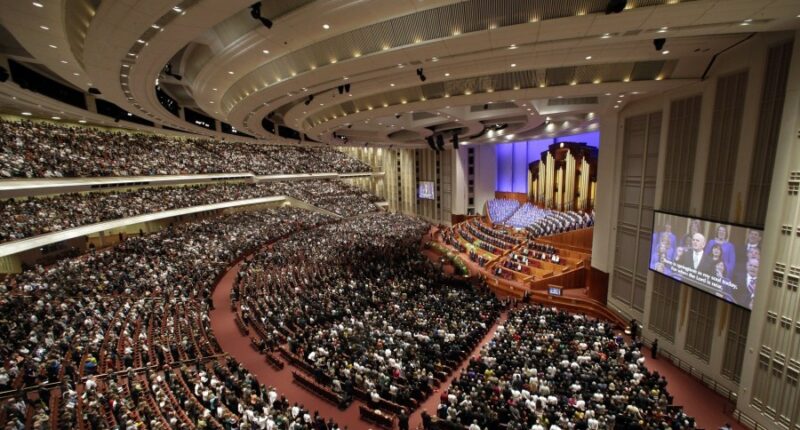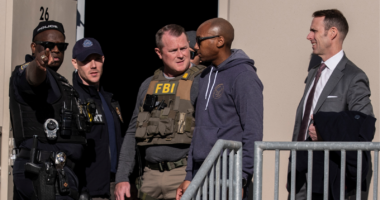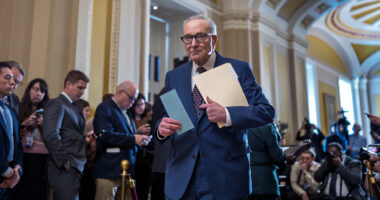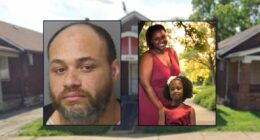Share this @internewscast.com

SALT LAKE CITY (AP) — The Church of Jesus Christ of Latter-day Saints is gathering on Saturday for its biannual general conference during a crucial time: shortly after both the passing of its oldest leader and a violent attack on a congregation in Michigan.
The passing of President Russell M. Nelson creates a gap, but the church’s clear leadership hierarchy ensures a seamless transition. Dallin H. Oaks is poised to step into Nelson’s role, having already served as one of Nelson’s top two counselors. Oaks is expected to be officially named president following Nelson’s funeral, set for Tuesday, a few days after the conference, which brings around 100,000 church members to Utah.
The 200-year-old church, often called the Mormon church, hasn’t held a general conference without a sitting president in around a century, yet there isn’t a leadership gap, explained Patrick Mason, a religious studies and history professor at Utah State University.
The Quorum of the Twelve Apostles, led by Oaks, is currently guiding the church and its over 17 million global members during the absence of a president, similar to how Brigham Young led for over two years after founder Joseph Smith’s death in 1844.
During the 19th century, it was routine for years to pass before appointing a new president. The Quorum also directed the church for extended durations after Young’s death in 1877 and John Taylor’s death in 1887.
The previous instance of a church president’s death occurring just before a general conference was in April 1951, when George Albert Smith passed away. His funeral was integrated into the conference, and a new president was officially introduced during the event.
Today, it is not uncommon for a living president to miss a conference for health reasons, especially given their ages. At 93, Oaks will be among the oldest presidents. Seven of the past nine have served into their nineties, including five beyond Oaks’ current age. Nelson lived to be 101.
Nelson’s absence is expected to be felt as thousands gather in person this weekend and many more tune in remotely from around the world. The two-day conference features sermons and serves as a unifying time for the faith’s global membership. Church officials often address major issues of the moment while leaving some room for members to interpret religious doctrine for themselves.
“I think Nelson’s shadow will hang heavy over the conference,” said Matthew Bowman, an expert on U.S. religious history at Claremont Graduate University.
The president — considered a prophet by members — traditionally speaks at general conference, and it is considered an event highlight during which new initiatives and policies have been announced. Nelson often used the time to announce the construction of new temples, one of his main enterprises as president. He was charismatic, sentimental and frequently quoted by other conference speakers, which Bowman expects will continue this weekend as they honor his legacy.
In addition to Nelson’s death, the faithful have been reeling from the attack on one of their congregations in Michigan last weekend. Four people were killed inside a church in Grand Blanc Township after a gunman rammed his pickup truck into the house of worship, shot at congregants and set a fire that destroyed a lot of the building. The gunman, who was killed by police, was described by friends as having a grudge against the church.
Experts do not expect this conference to look all that different, but they will be watching closely to see what Oaks says. At past conferences, he has been the most likely to address political issues, Bowman said.
Oaks, a former Utah Supreme Court justice, is known for his jurist sensibilities and traditionalist convictions on marriage and religious freedom. He has been a driving force in the church against same-sex marriage and in upholding a teaching that homosexuality is a sin, creating anxiety among LGBTQ+ members and their allies.
Oaks also has been outspoken about maintaining civil discourse and denouncing violence, which could again be a focus this weekend.
“Even before the recent shooting, I would not have been surprised to see him address either issues of religious freedom or of civility,” Bowman said. “But now, given the new responsibilities approaching him, I might expect him to take a longer view and speak to more broad issues of Christianity, eternity and so on.”
___
Associated Press writers Holly Meyer in Nashville, Tennessee, and Mead Gruver in Fort Collins, Colorado, contributed.

















